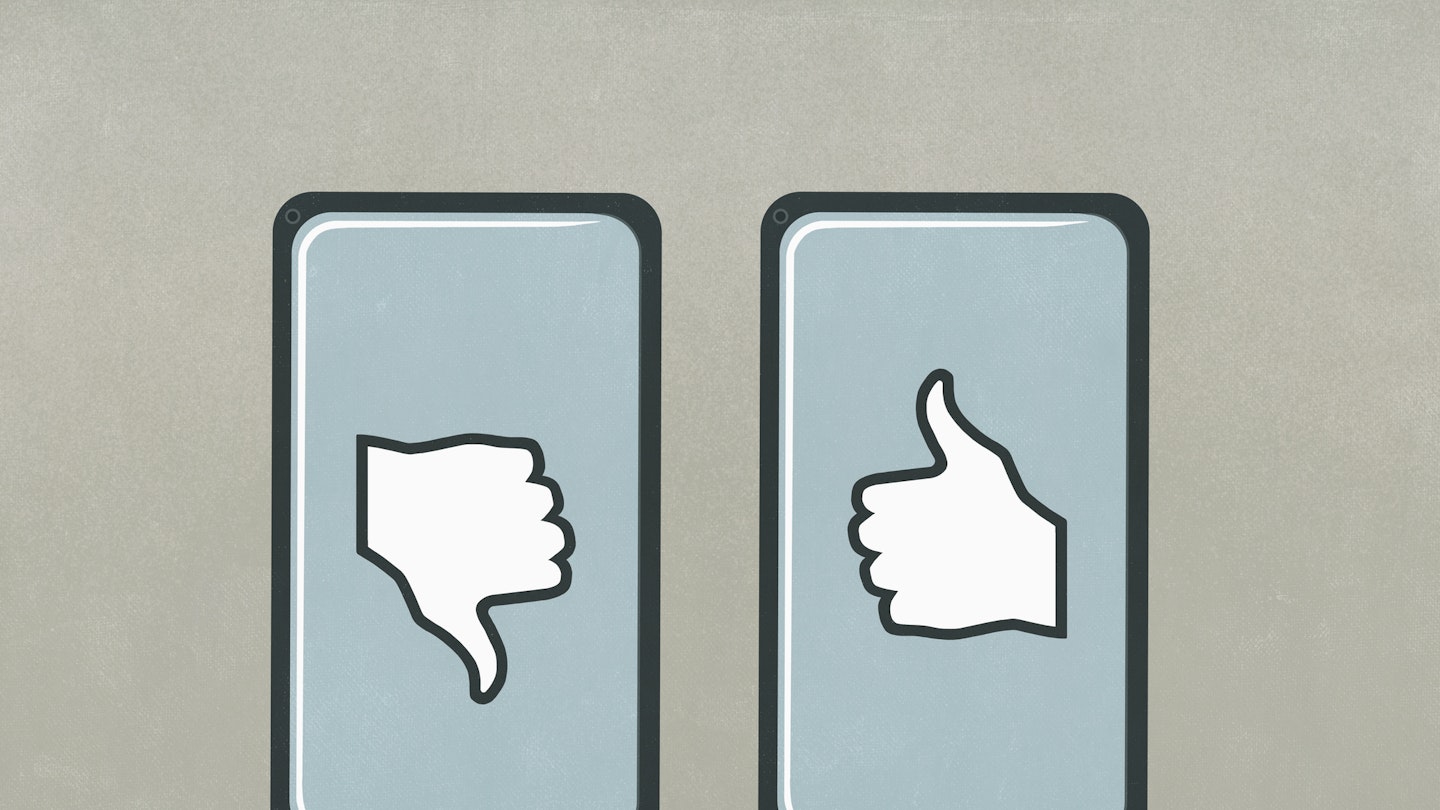Whenever a tragic event or crisis takes place social media is guaranteed to circulate through a variety of responses; from shock, to empathy, to jokes, criticism of those jokes, criticism of the shock and empathy, sharing of resources and critique of who should be sharing what. There will be those who place themselves at the centre of the narrative, and those who criticise those who do (thus also placing themselves at the centre of the narrative).
Most recently this cycle has taken place around the conflict in Ukraine. It’s easy to watch the horrifying footage and accounts of suffering and to feel like you should say something, even to feel like not saying something is tantamount to not caring. But time and again these harrowing events bring up the question of performative activism and what, when and why we should be posting.
READ MORE: This Is What You Can Do To Help People In Ukraine Right Now
Performative activism, or ‘slacktivism,’ as it’s also known, is done with the desire of increasing your own social capital, rather than a genuine care about the actual cause. It’s surface level; posting a black square on Instagram when you’re not willing to have difficult conversations about racism in the workplace, asking women on Twitter how you can make them feel safer but refusing to educate yourself on consent, waving a rainbow flag but failing to be an ally when one of your LGBTQ+ friends needs you. It’s a hot take on Ukraine that garners hundreds of likes when last week you couldn’t have pointed it out on the map. Not only can social media can make the illusion of caring very easy, it can be abused for clout at times of genuine crisis.
READ MORE: These Are The Donation Collection Points For Ukraine Near You
On the flip side we can be quick to judge someone who we deem to be not posting enough. Few people face more online wrath than the influencer who continues to post photos of their new puppy during a crisis – but it’s arguable that this is better than faux empathy and that the angry energy directed at them would be far better used on pretty much anything else. It is possibly one of social media’s most toxic traits that it allows us to believe that because we follow someone, we know them and not posting doesn’t always mean that people don’t care.
However, it is safe to say that irregardless of motive (and we never really know what’s going on in other people’s minds) there is a benefit to actionable good being played out on social media. Seeing people donate clothes and blankets, for example, may remind others to do the same. Sharing resources, fundraisers and first-hand accounts can increase solidarity, education and help to raise much needed money for aid. Social media can also allow people to find one another, to share stories to a wide reaching audience and to mobilise and organise.
Why You Need To Think Carefully When You Post About Russia And Ukraine On Social Media
When people criticise mass posting about an event or crisis it can tend to simplify our views on it as online chatter = bad, and offline actions = good. Former US President Barack Obama once suggested that social media activism is no substitute for community organising, saying, ‘There is a sense [that the way to provoke change] is to be as judgemental as possible about other people, and that’s enough. That’s not activism. That’s not bringing about change. If all you’re doing is casting stones, you’re probably not going to get that far.’ And in some ways he could be said to be right – especially when so much of the rhetoric online is about critiquing people’s critiques, rather than actually trying to help.
But research has shown there is a strong link between online and offline activism and those who partake. Maribel Tellado Garcia, from Amnesty International in Spain told Digital Future Society that, ‘The online environment has the extraordinary power of mobilizing hundreds of thousands of people for a cause [...] It can mean the difference between life and death.’ Maribel notes that online activism has been the catalyst for great change - in Argentina a campaign to legalise abortion gained support online and result in it being legalised, while Greta Thunberg’s #FridaysForFuture has helped to bring justice to victims of the climate crisis in places like the Philippines.
Even on a community level where most people only have a few hundred followers who may well share the same values anyway, there is goodness that can come from vocalising our support for people and causes. Research by Bristol University has shown that charitable giving, in particular, is a social act and that people are more likely to give to a fund if they’ve been encouraged to do so by someone they know. Similarly, a study by The Economic Journal found that if a JustGiving donor sees that the person before them has made a large donation, they’re more likely to give one themselves.
But how do we know when to take a step back? As a rule of thumb you should always be thinking about the ways in which your voice can either add or detract from the conversation. We need awareness, but we also need to be aware of our place – this is particularly pertinent if the crisis at hand has absolutely nothing to do with you or your lived experience. Empathy is important, of course, but not as important as platforming people with first-hand experience of the situation.
